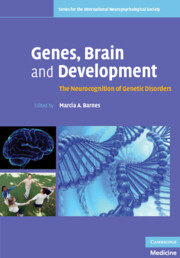2 results in Series for the International Neuropsychological Society

Genes, Brain and Development
- The Neurocognition of Genetic Disorders
-
- Published online:
- 04 August 2010
- Print publication:
- 07 January 2010

The Frontal Lobes
- Development, Function and Pathology
-
- Published online:
- 11 September 2009
- Print publication:
- 13 November 2006

